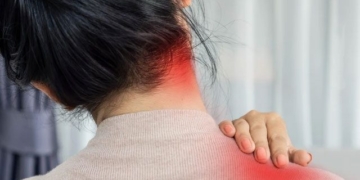Blue light not only causes insomnia but also contributes to premature aging.
Reasons Why Blue Light Can Cause Premature Aging
- What is blue light and how does it affect health?
- Why is blue light harmful to the skin?
- Decreased vision, lack of sleep, and insulin resistance accelerate aging
- Poor vision leads to wrinkles
- Lack of sleep leads to inflammation
- Increased blood sugar damages collagen
- What can we do to prevent the negative effects of blue light on the skin?
- Reduce overall blue light exposure
- Set up blue light blocking mechanisms on your devices
- Incorporate blue light protection into your skincare routine
For those concerned about beauty, especially skin health, avoiding the harmful effects of sunlight is a priority. However, many are unaware that blue light emitted from electronic device screens, such as phones and computers, can also damage your skin.
Blue light from screens significantly impacts overall human health, particularly the skin. It breaks down collagen, contributes to insomnia, and leads to insulin resistance. The following article will help you understand more about the harmful effects of blue light.
What is blue light and how does it affect health?
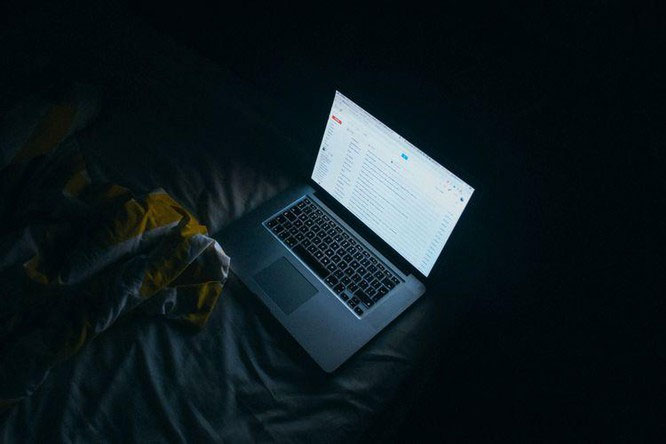
Artificial blue light is directly affecting our health. (Image: MUO).
Blue light is a spectrum of light that ranges from blue to violet, simply put, it is the color of the sky. Before the advent of electronic devices, we could only see blue light during the day when the sun was out.
However, with the development of technology and electronic devices, most of us are exposed to blue light even at night. Artificial blue light emitted from TVs, smartphones, and other digital screens is becoming increasingly common in our homes.
Unfortunately, this artificial blue light is directly harming our health. Recent studies indicate that blue light accelerates the aging process.
Most of us only use sunscreen to protect our skin from UV rays from sunlight, unaware that blue light from screens can also be harmful to our skin.
Why is blue light harmful to the skin?
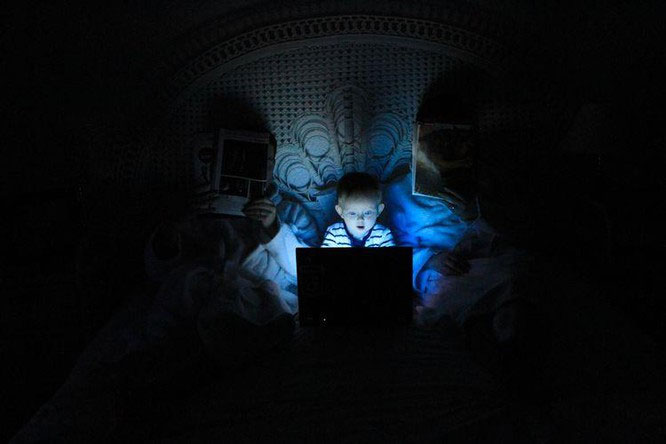
Limit phone use if you want to avoid premature aging. (Image: MUO).
Typically, blue light emits 90% high-energy visible (HEV) radiation, a type of high-energy light that can penetrate from 380 to 500 nanometers.
Compared to ultraviolet rays, which range from 100 to 400 nanometers, HEV can penetrate deeper and reach the dermis layer of the skin. Therefore, blue light can break down collagen and elastin in the skin, which are the components that provide skin elasticity.
According to a 2017 study by Nippon Medical University, blue light can cause oxidative stress in the skin. The study’s results indicate that exposure to blue light causes skin aging similar to UVA rays.
In 2020, the journal Cosmetic Dermatology published a study showing that short-term exposure to blue light could help prevent certain skin diseases, but prolonged exposure to blue light tells a different story. The research found that extended exposure to blue light increases the number of damaged DNA, leading to gradual cell death and damage to the skin’s protective layer, as well as harm to the eyes.
Decreased vision, lack of sleep, and insulin resistance accelerate aging
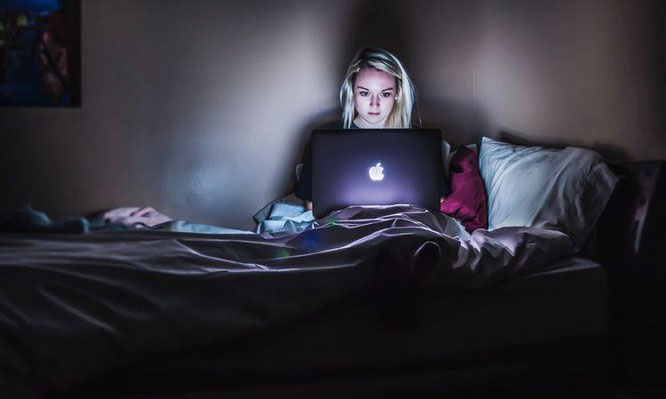
Blue light causes insomnia and decreased vision. (Image: MUO).
Unfortunately, blue light not only harms our skin but also accelerates the aging process by decreasing vision, causing insomnia, and leading to the body’s insulin resistance.
Poor vision leads to wrinkles
Blue light emits high-energy visible (HEV) rays that lead to macular degeneration and eye diseases, penetrating your eyes and potentially causing chromosomal breakage. Besides experiencing decreased vision as you age, the damage caused by these rays can lead to wrinkles and crow’s feet on your face.
Lack of sleep leads to inflammation
Blue light reduces our melatonin production at night, causing insomnia. Lack of sleep is detrimental to our skin as it causes inflammatory symptoms, leading to puffiness and making us look older.
Additionally, inflammation slows down collagen production in the dermis, causing more wrinkles to appear on the face.
Increased blood sugar damages collagen
A 2016 study from Northwestern University Feinberg School of Medicine found that exposure to blue light during meals increases insulin resistance. This is also a reason for elevated blood sugar levels; insulin resistance damages collagen in the dermis, hastening the appearance of wrinkles.
What can we do to prevent the negative effects of blue light on the skin?
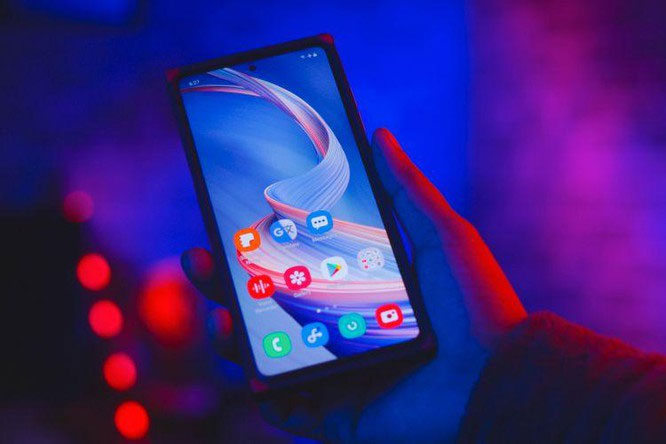
Use blue light filters on your phone to reduce harm. (Image: MUO).
Unfortunately, blue light is everywhere and cannot always be eliminated. However, we can make some small changes to reduce the impact of blue light on our lives, especially on our skin.
Reduce overall blue light exposure
One of the simplest things we can do to lessen the impact of blue light on our skin is to reduce overall exposure. Prevention is always better than cure; although most of us cannot avoid screen exposure during the day, there are ways to limit it, such as:
- Taking breaks between long periods of screen exposure
- Avoiding blue light-emitting devices before bedtime
- Doing the same for unnecessary tasks on the computer
Set up blue light blocking mechanisms on your devices
The next step to reduce blue light exposure is to take advantage of features on your devices, including:
- Using night mode features on your devices.
- Installing apps designed to reduce blue light emitted by the device.
- Maintaining dark mode if it feels comfortable for your eyes.
- Investing in blue light blocking filters.
Incorporate blue light protection into your skincare routine
Unfortunately, most sunscreens currently available on the market only protect against UV rays, specifically the SPF (sun protection factor). SPF only protects against UVB rays, while broad-spectrum sunscreens can only limit the effects of UVA and UVB rays on your skin.
Some sunscreens with ingredients like titanium dioxide and zinc oxide can defend against some types of HEV light. However, they can only cover areas close to the UV spectrum, not all of it.
You should also invest in additional antioxidants to counteract the effects of blue light on the skin and to restore the skin against the impacts of blue light. Some common antioxidants you can use include vitamin C and green tea.
Unfortunately, blue light is difficult to completely eliminate from our lives as many of us increasingly use electronic devices for work, entertainment, and connecting with loved ones.
However, creating good habits in our daily lives and work will help us mitigate some of the negative effects of blue light on our health.
















































